CALL FOR APPLICATION 2023
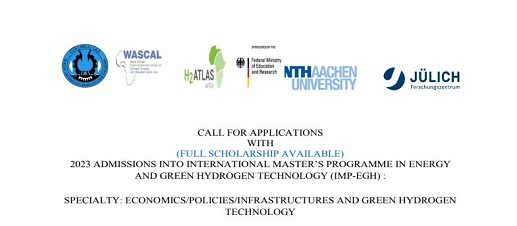

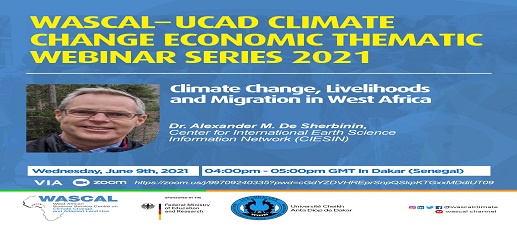
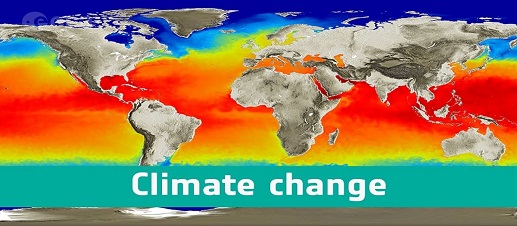
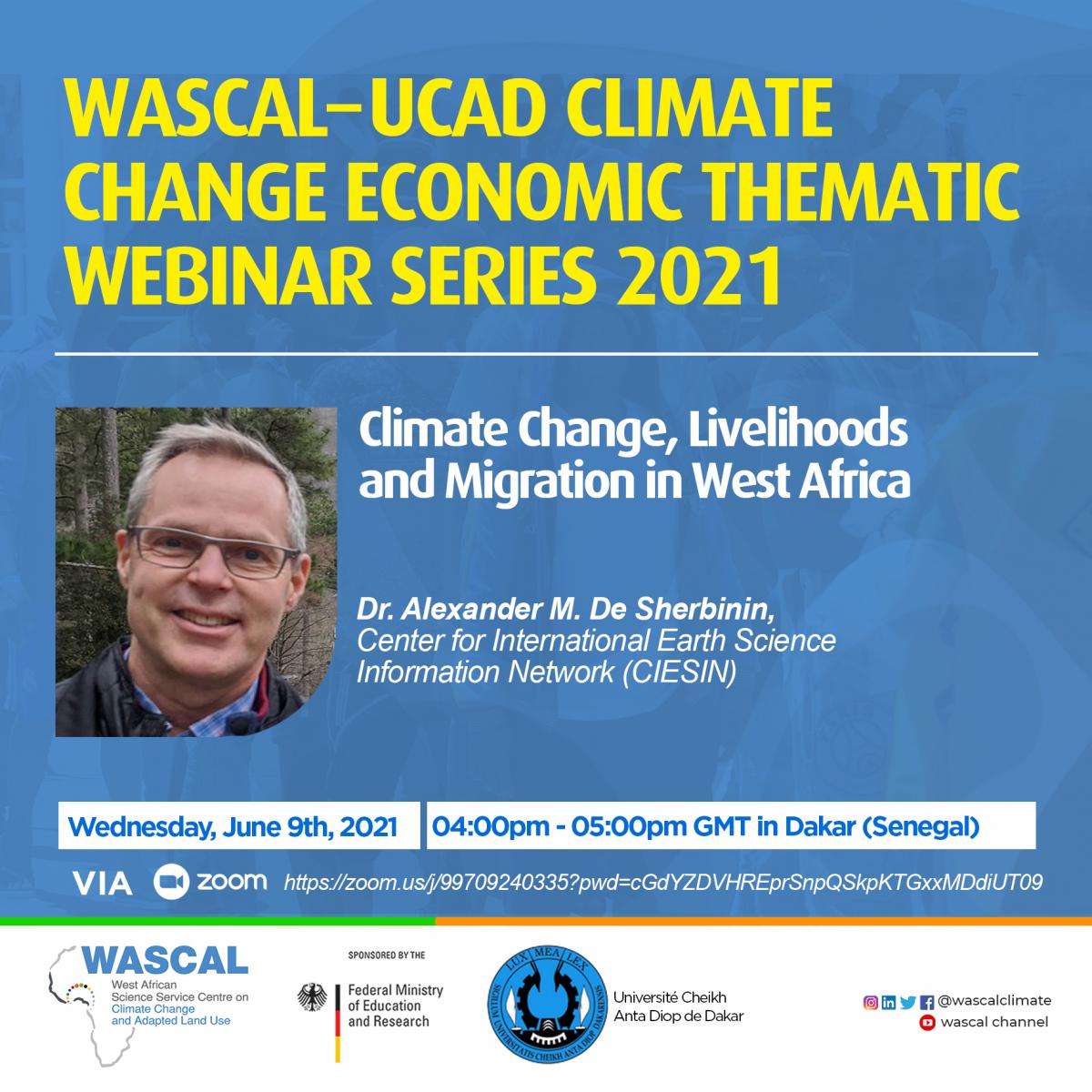
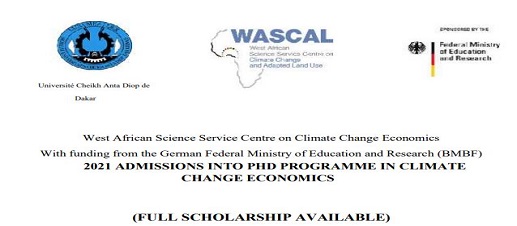
1. Background
The West African Science Service Centre on Climate Change and Adapted Land Use (WASCAL) under the sponsorship of the German Federal Ministry of Education and Research (BMBF) is pleased to announce application for its Doctoral and Master’s Research Programmes in all its eleven (11) West African partner universities. WASCAL is a wholly West African international organization with focus on academic and transdisciplinary research, building graduate-level scientific capacity and serving policy makers in West Africa with science-based advice on adaptation to climate change impacts and land use management. It cooperates with many agencies and universities in the region, providing a knowledge platform of excellence for its partners. WASCAL is funded by BMBF, multilateral and bilateral partners and its 11 West African member countries, namely: Benin, Burkina Faso, Cabo Verde, Cote d’Ivoire, Ghana, The Gambia, Mali, Niger, Nigeria, Senegal and Togo. WASCAL’s mission is to provide information and knowledge services at the local, national and regional levels to West African member countries to cope with the adverse impacts of climate change. We do this through capacity building support to young West African scholars in fields of climate, natural and social sciences and by delivering climate and environmental services in member countries. The Graduate Studies Programme (GSP) in Climate Change Economics was launched at University Cheikh Anta Diop (UCAD) in 2011 and has already trained 3 batches of students from different WASCAL member countries. This programme contributed to train 29 PhDs in Climate Change Economics in topics such as agriculture, fishing, livestock, food security, gender, migration, urban planning, coastal erosion, renewable energy, green entrepreneurship in the context of Climate Change. This call for applications concerns the 5th batch which aims to select students among the member countries.
For more information, download the call for application call for application_PhD_UCAD- Batch5.pdf
and the application form Application form final-UCAD.pdf
CALL FOR APPLICATIONS WITH (FULL SCHOLARSHIP AVAILABLE)
2021 ADMISSIONS INTO INTERNATIONAL MASTER’S PROGRAMME IN ENERGY AND GREEN HYDROGEN TECHNOLOGY (IMP-EGH)
1. Background
The West African Science Service Centre on Climate Change and Adapted Land Use (WASCAL) under the sponsorship of the German Federal Ministry of Education and Research (BMBF) is pleased to announce application for its International Master’s Programme in Energy and Green Hydrogen (IMP-EGH) in all fifteen (15) ECOWAS countries partners namely: Benin, Burkina Faso, Cabo-Verde, Côte d’Ivoire, Gambia, Ghana, Guinea, Guinea Bissau, Liberia, Mali, Niger, Nigeria, Senegal, Sierra Leone and Togo.
WASCAL is a wholly West African international organization with focus on academic and transdisciplinary research, building graduate-level scientific capacity and serving policy makers in West Africa with science-based advice on adaptation to climate change impacts and land use management. It cooperates with many agencies and universities in the region, providing a knowledge platform of excellence for its partners. WASCAL is funded by BMBF, multilateral and bilateral partners and its West African member countries.
Given the fact that Climate Change management (adaptation and mitigation) strategies require an integrated, interdisciplinary and multi-sectorial approach, the International Master
Programme in Energy and Green Hydrogen (IMP-EGH) is designed to prepare the next generation to address the energy challenges of adaptation and resilience to Climate Change in West Africa. The programme will equally allow a better understanding of present-day energy infrastructures in West Africa, their strength and weaknesses, energy policies, practices in a Changing Climate context and the search for sustainable solutions.
2. Mission
The mission of this programme is to provide training on state-of-the-art tools used in renewable energy, green hydrogen technology and policy (politics and economics) with the view of training adequate human resources to boost the sector of energy technology and guide policy formulation across the West African region.
3. Objective
The main objective of this Master’s Programme is to prepare and train a new generation of
interdisciplinary professionals capable of proposing adapted solutions to ongoing energy crisis.
4 Specialties
5. Eligibility criteria
The International Master’s Programme in Energy and Green Hydrogen (IMP-EGH) is open to candidates,
• from West African countries (Benin, Burkina Faso, Cabo-Verde, Côte d’Ivoire, Ghana, Guinea, Guinea Bissau, Liberia, Mali, Niger, Nigeria, Senegal, Sierra Leone The Gambia and Togo);
• with a minimum background of a BSc. degree or equivalent in scientific discipline or in engineering, technical strengths in physics, (bio)chemistry, electrical or mechanical engineering or equivalent;
• who are not more than 35 years old at the end of December 2021;
• who have a good English proficiency (this will be an asset for final selection).
Female candidates are highly encouraged to apply.
6. Outline of the programme
The International Master’s Programme in Energy and Green Hydrogen is a well-structured programme consisting of three (3) semesters of taught courses, lab activities, field visits and interactive activities with stakeholders and one (1) semester constituted by four phases:
Phase I: Writing and validation of the research project
Phase II: Field study
Phase III: Internship in Germany
Phase IV: Final writing of the Master Thesis
Phase V: Master Thesis defense and graduation in the dedicated GRP
7. Working Language
The International Master’s Programme in Green Hydrogen is a structured programme with English as language of instruction. Successful candidates must have a background in English which could allow them to follow the planned classes. To improve language skills, English language courses will be offered by WASCAL to selected Francophone students at the University of Cape Coast (Ghana), to help them meet entry requirement. Anglophone students will also be given the opportunity to take French language courses at Université de Lomé (Togo). The Language Course is geared towards fostering future professional communication, collaboration, negotiations and friendships between the French and English-speaking students.
8. Application procedures
9. Selection procedures
Green Hydrogen Technology.
10. Duration
24 months.
11. Scholarship and research support
12. Application address
Candidates may apply directly to the respective GRP. All requested documents should be sent via e-mail to:
Deadline for applications: April 30, 2021.
Download UCAD FOR APPLICATION UCAD FORMS.pdf
Download LOME FOR APPLICATION LOME APPLICATION FORM.pdf
Download NIGER FOR APPLICATION NIGER FORMS.pdf
Download ABIJAN FOR APPLICATION UFHB APPLICATION FORM.pdf
Conférence sur le changement climatique et la sécurité alimentaire en Afrique de l'OuestDates: 18-19 Novembre, 2019
À propos de la conférence
Le changement climatique affecte la sécurité alimentaire de multiples façons complexes. Il affecte la disponibilité alimentaire par ses impacts sur le rendement des cultures et la productivité du bétail. Pour de nombreux acheteurs nets de denrées alimentaires des ménages de la région, les pertes de rendement des cultures et de productivité du bétail peuvent souvent se traduire par un accès réduit à l'alimentation en raison de la hausse des prix des denrées alimentaires. De plus, la fréquence plus élevée des événements météorologiques liés au changement climatique, tels que les vagues de chaleur, les sécheresses et les inondations, peuvent compromettre la stabilité des systèmes alimentaires et exacerbe également les problèmes existants en matière de sécurité alimentaire et la sécurité nutritionnelle en Afrique de l'Ouest, qui présente des risques particulièrement graves pour les plus vulnérables groupes sociaux.
En outre, l'évolution des conditions climatiques facilite la propagation des maladies infectieuses, ce qui se répercute de plus en plus sur la sécurité nutritionnelle et la santé humaine. L'évolution du potentiel agricole due au changement climatique aura de profondes répercussions sur les choix de cultures et d'élevage et, par conséquent, sur les chaînes de valeur alimentaires locales. D'autre part, les choix individuels et politiques faits en matière de systèmes alimentaires et de régimes alimentaires ont des implications importantes pour l'atténuation du changement climatique. Les populations d'Afrique de l'Ouest ont historiquement fait preuve d'une grande ingéniosité et d'une grande résilience face aux différents chocs sociaux et climatiques. Toutefois, la nature souvent sans précédent des changements climatiques prévus pour la région et leurs implications sur la sécurité alimentaire peuvent nécessiter de nouvelles solutions combinant des réponses technologiques, socio-économiques et politiques innovantes.
Cette conférence est destinée à servir de plateforme d'échange et de discussion sur les derniers résultats de la recherche sur la relation entre le changement climatique et la sécurité alimentaire en Afrique de l'Ouest, en particulier sur les solutions et les idées novatrices et de pointe liées aux thèmes de la conférence. La conférence vise à réunir des chercheurs en début de carrière et des chercheurs expérimentés en économie et autres sciences sociales de la région de l'Afrique de l'Ouest afin de promouvoir les échanges mutuels et les collaborations sur ce sujet crucial.
Telecharger ci-dessous l'agenda et l'appel à contributions
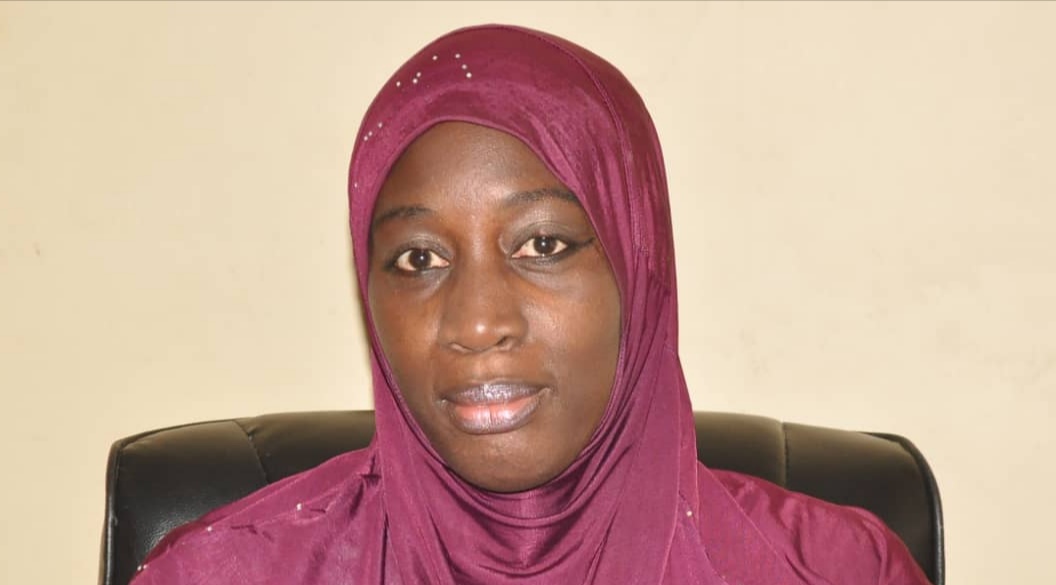
Directrice du programme de recherche doctorale de WASCAL en économie du changement climatique, à l'Université Cheikh Anta Diop du Sénégal, Fatou Gueye est devenue la première femme professeur d'économie à l'Université depuis sa création en 1957.
Ceci a été annoncé par le Comité du Conseil Africain et Malgache de l'Enseignement Supérieur (CAMES), la seule entité intergouvernementale mandatée pour évaluer les candidatures du personnel national d'enseignement et de recherche universitaire pour une promotion académique, dans les 18 pays africains francophones.
Fatou Gueye a récemment accédé au poste de directrice du programme de recherche doctorale WASCAL au Sénégal, après avoir été coordinatrice adjointe à partir de 2011. Elle a obtenu son doctorat en économie en 2012 dans le cadre du Programme interuniversitaire de troisième cycle (NPTCI) de l'UCAD. Elle a ensuite été recrutée au département d'économie de la faculté d'économie (FASEG) en 2008, où elle a participé activement aux travaux de recherche sur le secteur informel en Afrique occidentale et centrale, entrepris par CREA/Université Cheikh Anta Diop pendant plus de 12 ans jusqu'à présent. Elle a également mené des recherches sur divers sujets relatifs au développement durable.
En tant qu'organisation internationale ouest-africaine de lutte contre le changement climatique (CC) qui s'est engagée à fournir des solutions au changement climatique par la recherche et le renforcement des capacités, WASCAL est fière de compter le professeur Fatou Gueye parmi ses nombreux professeurs de haut niveau. Félicitations Professeur.
WASCAL est confiant que vous continuerez à diriger le WASCAL-DRP au Sénégal pour mettre l'accent sur l'application de la rationalité économique pour analyser les stratégies d'adaptation et d'atténuation liées au changement climatique, afin d'assurer une approche interdisciplinaire et globale de l'analyse et des politiques liées au climat.
Copyright © 2026,